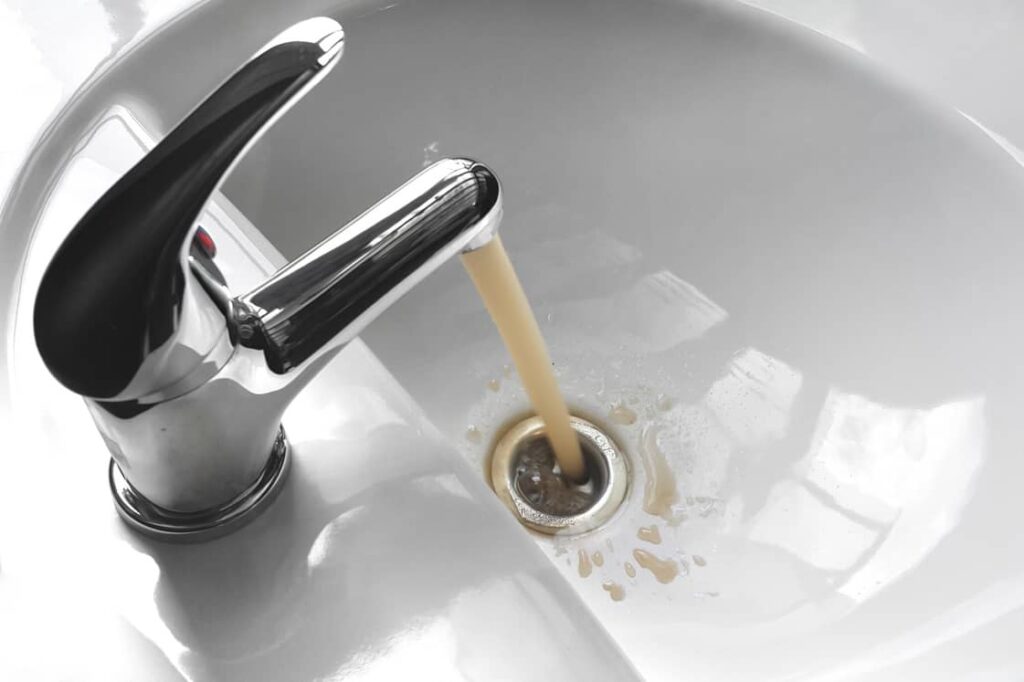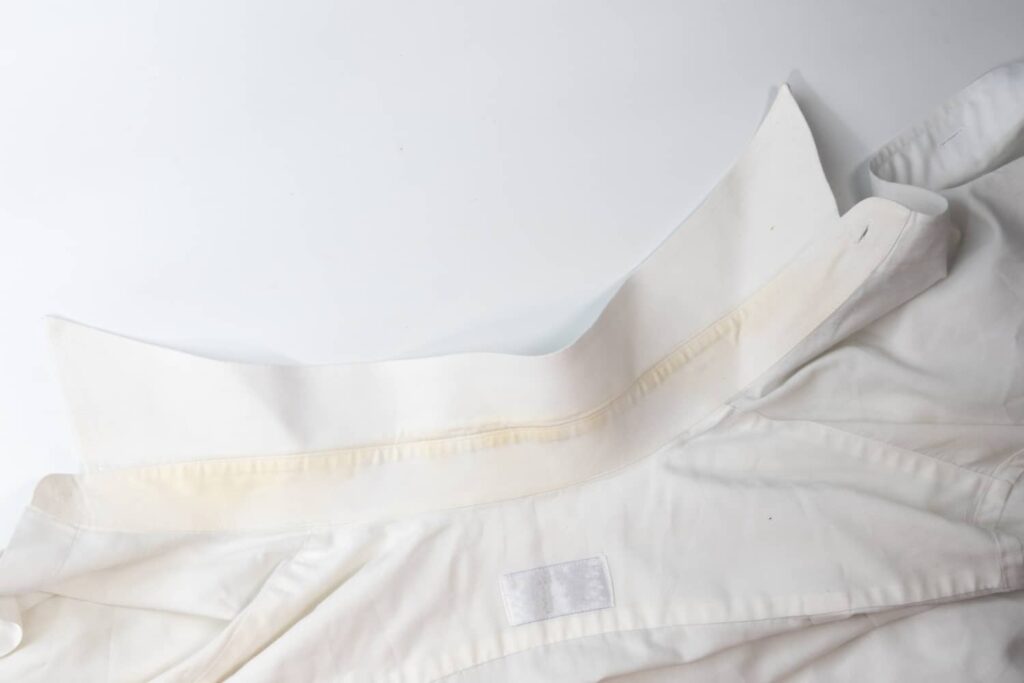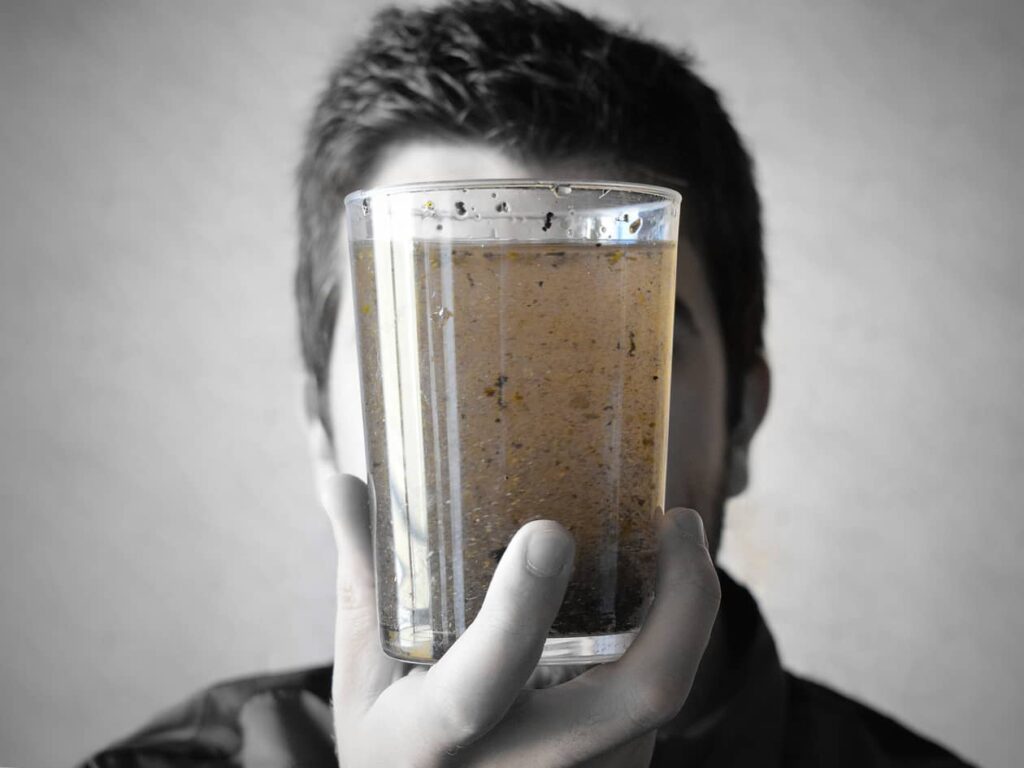Washing dishes is something that many people don’t enjoy doing. While you are performing this dreaded task, you notice brown water coming out of the faucet. Gross! You wonder what might be causing this as you think your well is pretty clean. Why is my well water brown all of a sudden? Contamination in the water, heavy rain, the water level drops, or the well has collapsed.
Let’s take a look below at the possibilities.

What Causes This To Happen
As mentioned above, there are several reasons you have brown well water all of a sudden. Rust, Iron, and Manganese have an issue with the well, silt, or tannins. One area to check first is your water heater if the brown color is due to an issue with the hot water heater. The water heater may have rust so checking there first might be a good idea.
Rust
If there are issues with piping or plumbing fixtures, the water can turn brown or even reddish. Rusty pipes can cause the water to discolor.
Iron and Manganese
Another cause can be contamination of iron and manganese. Rainwater and melting snow have iron that goes through the soil, which can affect the water color. Also, if there is corrosion from steel well casing, iron, or water pipes, the water may also discolor. Iron may make the water have a smell or taste that is slightly off, but is usually harmless and safe to drink.
The Well
The next reason why the well water turns brown all of a sudden can be due to the well. If there is a problem with the structure of the well or the water level, this can turn the water brown. You may need to check the water pump for any damage as well.
Silt
Silt or sediment as it is often called can turn the water brown in the well. Sometimes it may get into the water through the pump and that is not a good thing. Also if there is damage to the well, you may see silt, sand, and other solids, and they may be a sign of E.Coli bacteria and make you and your family sick.

Tannins
Decaying leaves and peaty soil can produce tannins. This organic material will deep through the earth and go into the well and through the aquifer. If you have ever noticed yellowish stains on your clothing, this comes from rainwater that has tannins in it. Tannins also produce a smell that is earthy and has a weird aftertaste. Fortunately, they are not a risk to your health if in a small amount, but it doesn’t taste good.
Now that you know about what causes brown water, let’s look at how to fix this.
How Do I Fix This
Believe it or not there are a few areas that you can fix in order to no have brown water coming from the well. Let’s take a look at what those options might be.
- Filter the Sediment – if you can install a filtration system that will filter up to 50 microns or more of sediment from the well, then you should not have any brown water issues.
- Oxidizing by Air Injection – air injection filters will reduce the amount of iron in the water exponentially. Installing an air-injected oxidizing system can reduce the amount of iron and manganese in your system by up to 15 ppm (parts per million).
- Reverse Osmosis – most wastewater treatment facilities will use reverse osmosis to remove dissolved solids from the water. This type of system will send a water system full of waste through multiple filters and semi-permeable membrane screenings. You would use a reverse osmosis system to remove iron, tannins, and sediment from your water.
- Greensland filter – these types of filters will oxidize iron and manganese and turn them into solids. These solids will sit on the top of the solution until they are removed by backwash.
- Replace the pipes – if your water is brown, it is also possible due to rusted pipes. Check out how old the pipes are and see whether or not it could be time for a plumbing update.
Here is a video about what to do with brown water that is from tannin.
Other Recommended Maintenance
Now that you know about brown water from the well, here are some areas to keep an eye on.
One of those is fixing cloudy tap water. Now, this is not the same as brown water, but you can get rid of the bubbles in the water, soften the water, test the water, use a sediment filter, and get rid of methane gas to make the water clearer. As with brown water, you want your drinking water clear so you and your family stay healthy.
The next area of maintenance is cleaning sediment from water lines. It is important to do this because you will have a slow flow of water, in addition to particles in your water that you don’t want to have. To do this, flush cold water back through the hot water pipes.
Lastly, if you have a hot water tank, it is important to know how long it takes to heat up the water. This will vary if it is electric, gas, or tankless. Also, it depends on the size, as well as age, if there is corrosion, or how long it takes the water to travel across your hot water lines.

When Do I Call A Professional
When you are dealing with water that is discolored, you want to involve a professional plumber. This is because there are a lot of reasons for the brown color and you want to make sure you are not putting your family’s health at risk. Also, if you aren’t sure of a reputable master plumber, call on your local home inspection team. They can inspect your plumbing system, which includes the water heater, and recommend a reputable local master plumber.
Conclusion
Water is something that is essential for bathing and drinking and you need to make sure you have a clean water supply. Finding out if it is an issue with your well or if your water is safe is important. If you aren’t sure what the issue is, call your local home inspection team. Reach out to Enviroquest Home Inspections for water testing and complete home inspections in Harrisburg, PA.
